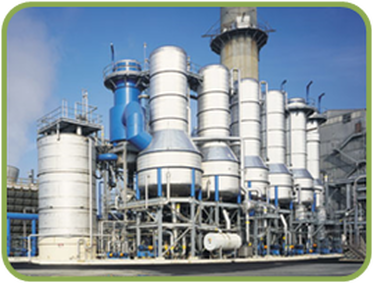Goal and Strategy
|
Develop a more energy-efficient method to remove water from kraft pulp mill black liquor.
Technologies to address the following barriers to membrane separation:
|
High-Priority Projects
Robust Membranes to withstand high temperature, high pH environments
Phase II - Development of RO membrane for rejection of salts, scale-up, and optimization, as well as completion of the business case based on actual performance parameters.
Status: NF membranes with high rejection rate for lignin were developed in the prior phase of this work. The project is financially supported by APPTI member companies and a grant from the Renewable Bioproducts Institute at Georgia Tech. Phase II recently won Department of Energy funding as part of the RAPID Manufacturing Institute.
PI: Sankar Nair, Georgia Tech
Bench-Scale Membrane Testing with Characterization of Streams
There are some promising commercially available membranes that might work with black liquor. They need to be tested at industrial conditions to conclusively demonstrate that a membrane-based concentration technology can produce a permeate stream suitable for combining with evaporator condensate for ultimate use in pulping washing operations.
Status: Launched September 2017. As of March 2018, the test rig is operational; test procedures are in development; softwood black liquor is being tested and hardwood liquor is pending. Model synthetic liquor is being developed and tested.
PI: Scott Sinquefield, Renewable Bioproducts Institute-Georgia Tech
Robust Membranes to withstand high temperature, high pH environments
Phase II - Development of RO membrane for rejection of salts, scale-up, and optimization, as well as completion of the business case based on actual performance parameters.
Status: NF membranes with high rejection rate for lignin were developed in the prior phase of this work. The project is financially supported by APPTI member companies and a grant from the Renewable Bioproducts Institute at Georgia Tech. Phase II recently won Department of Energy funding as part of the RAPID Manufacturing Institute.
PI: Sankar Nair, Georgia Tech
Bench-Scale Membrane Testing with Characterization of Streams
There are some promising commercially available membranes that might work with black liquor. They need to be tested at industrial conditions to conclusively demonstrate that a membrane-based concentration technology can produce a permeate stream suitable for combining with evaporator condensate for ultimate use in pulping washing operations.
Status: Launched September 2017. As of March 2018, the test rig is operational; test procedures are in development; softwood black liquor is being tested and hardwood liquor is pending. Model synthetic liquor is being developed and tested.
PI: Scott Sinquefield, Renewable Bioproducts Institute-Georgia Tech
Industry Perspective on Membrane Developments
The APPTI Black Liquor Concentration Committee developed a brief document in December 2021 to reiterate the key targets identified and cited in the roadmap for selectivity, flux, and fouling. That document can be accessed by clicking on this LINK.
The APPTI Black Liquor Concentration Committee developed a brief document in December 2021 to reiterate the key targets identified and cited in the roadmap for selectivity, flux, and fouling. That document can be accessed by clicking on this LINK.

